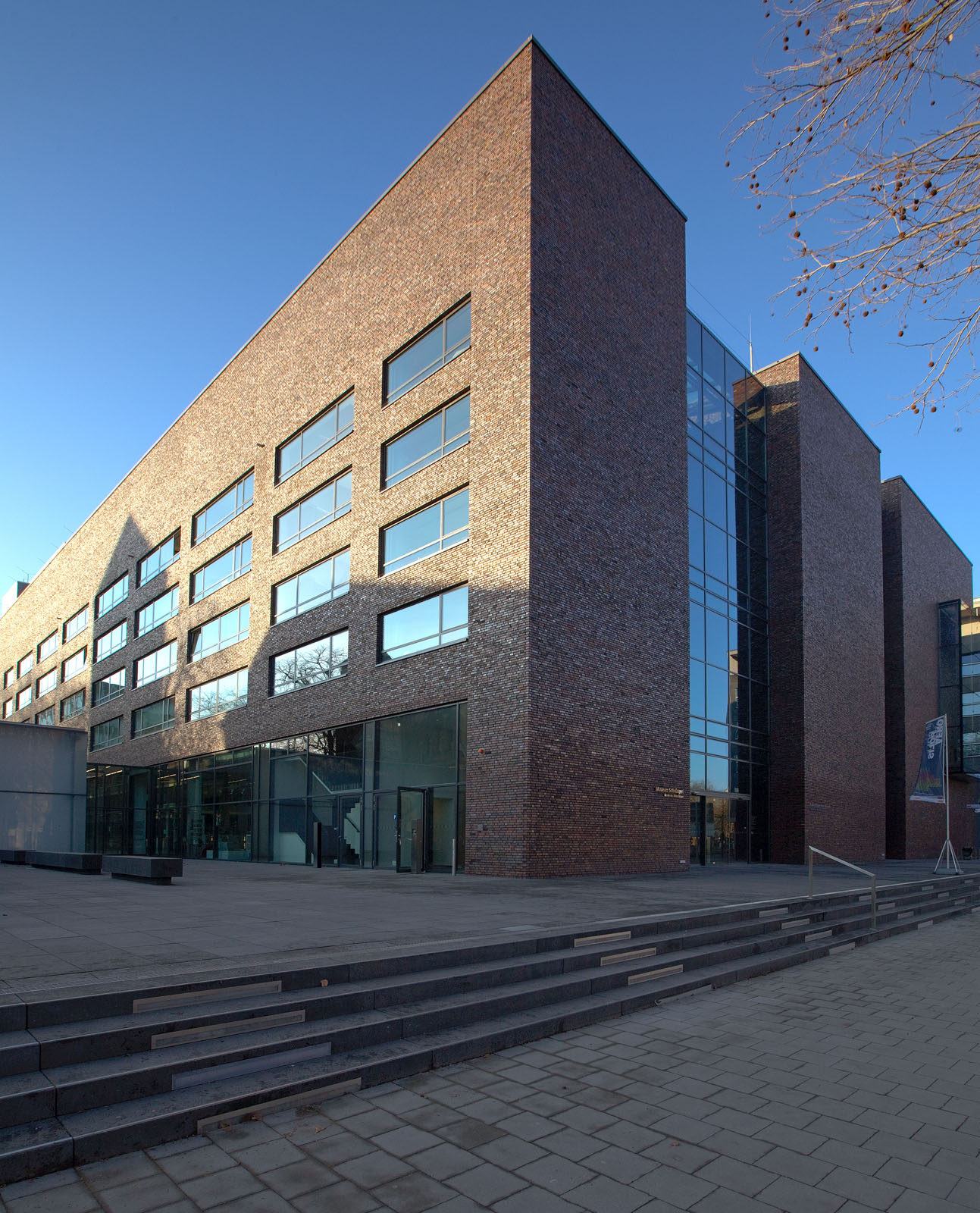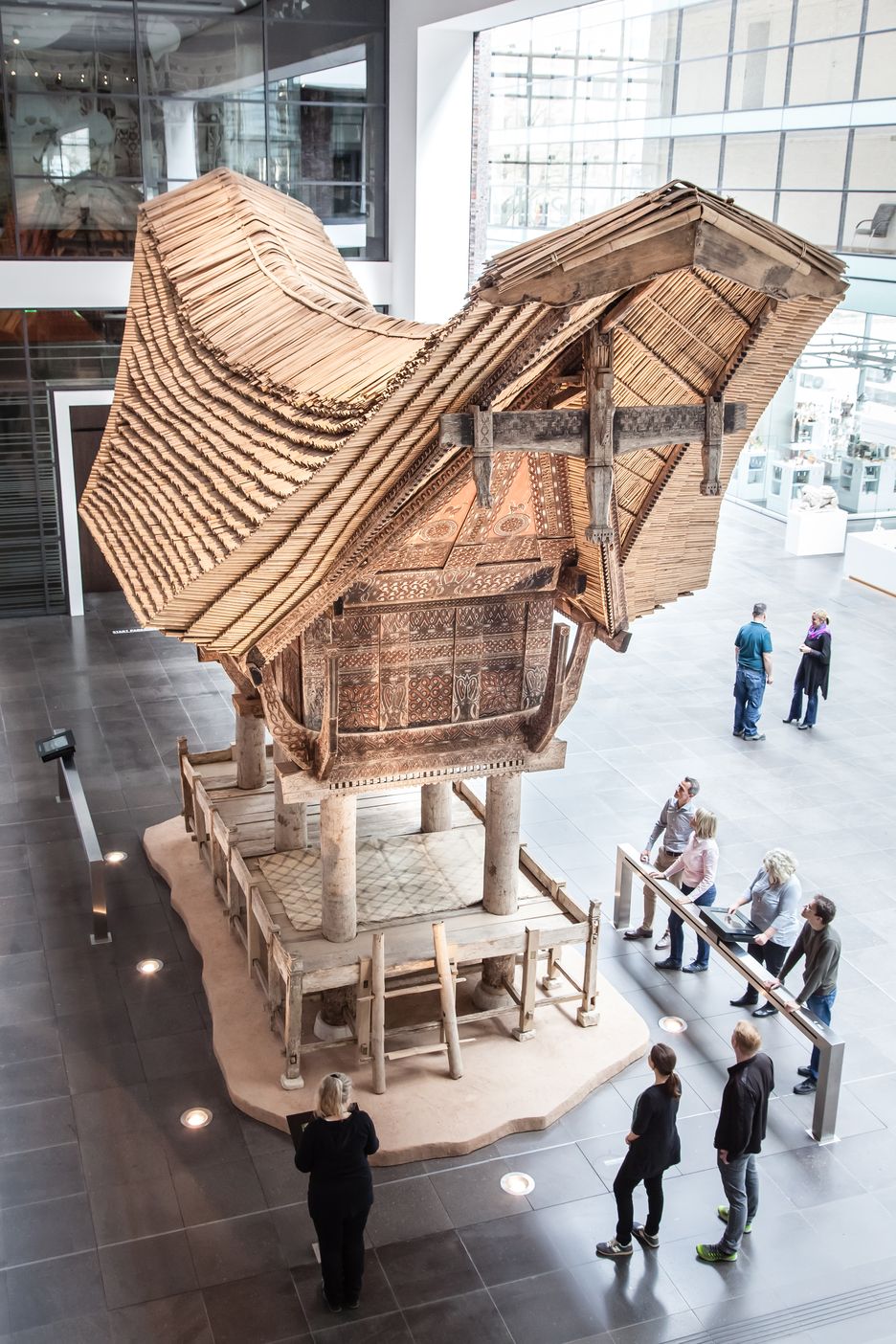Rautenstrauch-Joest Museum - Cultures of the World, Germany
 The Rautenstrauch-Joest Museum has a special position in North-Rhine Westphalia. As the only public institution of its kind it has devoted itself for over a hundred years to the dissemination of aspects of non-European history, culture and art in a wide-ranging programme of exhibitions and events. In this way it has an important educational mission which is assuming more and more importance for the solution of current questions and problems of living together in a multicultural society: it is only through a knowledge of other cultures and awareness of different concepts of life - even in the immediate vicinity - that mutual understanding, appreciation and tolerance can be promoted.
The presentation concept does not follow the division into major geographical regions usual in comparable museums. Instead it takes up themes which move people all over the world, but which they address in their own special way depending on regional and cultural influences. This comparative cultural approach emphasises the equality and equal validity of all cultures, it provides impulses for thought and stimulates dialogue. The inclusion of our own culture in this comparative approach goes some way towards relativising our own standpoint.
3,600 m2 of exhibition space invite visitors to embark on a journey of discovery which is both unexpected and enlightening. The presentation is centred on the authentic object with its specific aura and context. Multimedia points encourage visitors to engage actively with the presentation, which is complemented by a wide va
The Rautenstrauch-Joest Museum has a special position in North-Rhine Westphalia. As the only public institution of its kind it has devoted itself for over a hundred years to the dissemination of aspects of non-European history, culture and art in a wide-ranging programme of exhibitions and events. In this way it has an important educational mission which is assuming more and more importance for the solution of current questions and problems of living together in a multicultural society: it is only through a knowledge of other cultures and awareness of different concepts of life - even in the immediate vicinity - that mutual understanding, appreciation and tolerance can be promoted.
The presentation concept does not follow the division into major geographical regions usual in comparable museums. Instead it takes up themes which move people all over the world, but which they address in their own special way depending on regional and cultural influences. This comparative cultural approach emphasises the equality and equal validity of all cultures, it provides impulses for thought and stimulates dialogue. The inclusion of our own culture in this comparative approach goes some way towards relativising our own standpoint.
3,600 m2 of exhibition space invite visitors to embark on a journey of discovery which is both unexpected and enlightening. The presentation is centred on the authentic object with its specific aura and context. Multimedia points encourage visitors to engage actively with the presentation, which is complemented by a wide va riety of events. They help to enhance visitors’ sensibility to ways of seeing things in other cultures so that the museum may be experienced as a place of encounter, dialogue and social participation.
riety of events. They help to enhance visitors’ sensibility to ways of seeing things in other cultures so that the museum may be experienced as a place of encounter, dialogue and social participation.
Permanent collection
The origins of the Rautenstrauch-Joest Museum date back to the 19th century. After his early death in the year 1897 the Cologne-born explorer Wilhelm Joest left his sister Adele, who was married to the merchant Eugen Rautenstrauch, roughly 3,500 ethnographic objects from all over the world. In memory of her brother and her husband, who died three years later, Adele Rautenstrauch provided the funds for the building of the Rautenstrauch-Joest Museum in South Cologne, which was opened in 1906. Today the collection comprises roughly 67,000 objects and 100,000 historic photographs from Oceania, Africa, Asia and America, and a considerable specialist library.View all ASEMUS members in Germany
Similar content
18 Nov 2015 - 20 Nov 2015
20 Nov 2019 - 22 Nov 2019
posted on
28 Feb 2012
10 Dec 2018
posted on
30 Nov 2011
22 Nov 2017 - 24 Nov 2017
